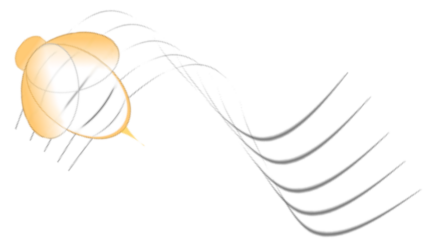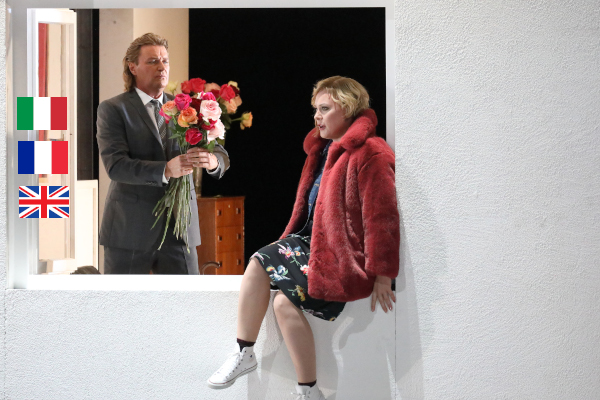Mourning and catharsis
by Susanne Krekel
Munich, 4 October 2024 - Whoever wants to doubt the healing power of music should go and see Die tote Stadt! It is one of the rare operas where the libretto is as good as the music, and, curiously enough, written by the 23-year-old composer’s father.
In a kind of catharsis, thanks to Korngold’s captivating music, durchkomponiert and influenced by Strauss, Wagner (and a fleeting thought goes to the old antisemite, wondering what he would have made of a Jew using his leitmotiv technique so brilliantly), or even Puccini, this work takes us on the inner journey whit its main character, eventually allowing him to overcome his obsessive grief: In Bruges lives Paul, an unconsolable widower, alone among the mementoes of his dead wife, Marie, with Brigitta, the housemaid. Bruges, the dead city, its canals with stagnant waters, its old stone walls covered in moss and lichen, obviously symbols of someone being trapped in the past.
One day, Paul meets Marietta, a light-hearted dancer of even lighter morals, who looks eeriely like Marie. A tumultuous relationship develops, as well as a phantasmagoric party scene with Marietta’s dancing troupe. Paul finds himself in a conflict of loyalty: he wants to stay true to Marie’s memory, but Marietta’s light-hearted gaiety and frivolous sex-appeal are irresistible to him. Marietta on the other hand is getting ever more jealous of Marie. During a frantically dramatic fight, she seizes Paul’s most sacred treasure, a lock of Marie’s hair; Paul loses control and strangles her… to find that there is no body. Everything was just a dream. His friend Frank comes along to announce that he will leave the place and suggests that Paul come with him. Paul accepts - he is free, the prison walls of his grief have crumbled in the paroxysm of the dream. In a poignant finale, Paul sings his acceptance, and we understand with him that there is no hanging on to people who have left us, that there is no need to cultivate grief, sadness will always be there and we have to learn to live with it.
In this 2019 production, Simon Stone makes clever use of Paul’s house to illustrate the dreamlike scenes of the piece. In Act I, we see a perfectly normal bungalow, furnished in the taste of the 60’s Scandinavian style, lots of wood and clear lines. One tiny room is entirely dedicated to the memory of Marie. In Act II, the same house has undergone a major change, some rooms are on top, and the disposition of the rooms doesn’t follow daytime’s clear logic, like the houses we see in our dreams. Apparently, this is Marietta’s house, there is some disorder, the decorations have changed. And when Paul arrives, he comes face to face with his doppelgänger, several versions of Marie will haunt the place - another dream element. In Act III, we find the house again as in Act I, a space for reality to take over.
Vida Miknevičiūtė is stunning in the role of Marietta/Marie. Full of fun and energy, with a voice that is both strong and tender, she jumps, she runs, all the while singing the difficult score without apparent strain: chapeau, Madame! Just as admirable is the great Klaus Florian Vogt as Paul. An experienced Wagner singer, with a voice that keeps its golden shine in the fortissimo and goes right to the heart in the pianissimo, he keeps his strength until the very end; his acting and singing are natural throughout. In the duet „Glück das mir verblieb” with Vida Miknevičiūtė , their voices come together in a most wonderful way and the dynamics between them work perfectly all along. Just as remarkable is Sean Michael Plumb as Frank/Fritz with his interpretation of Pierrot’s song „Mein Sehnen, mein Wähnen”, full of nostalgia.
Lothar Koenigs conducts the formidable Bayerische Staatsorchester with assurance and drive, attentive and yet discreet; when at the finale Paul sits at the kitchen table with a bottle of beer - and what better way to show that life is back to normal? - and after the last „Glück das mir verblieb”, the last chords of the orchestra fade away, the public is stunned into silence before well deserved bravos and applause break out.
An evening of pure enchantment, thank you and bravi tutti!


